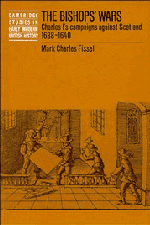Book contents
- Frontmatter
- Contents
- List of Maps
- Preface
- List of abbreviations
- 1 THE EVENTS OF THE BISHOPS' WARS AND CAROLINE POLITICS
- 2 INSTITUTIONS
- 3 MILITARY FINANCE
- 4 RELUCTANT LORDS AND ABSENT MERCENARIES
- 5 THE PERFECT MILITIA
- 6 IMPRESSMENT AND THE SUBSTITUTION CLAUSE
- 7 RIOT, ICONOCLASM, AND MURDER AMONGST THE SOLDIERY
- 8 CONCLUSION
- Bibliography
- Index
- Cambridge Studies in Early Modern British History
6 - IMPRESSMENT AND THE SUBSTITUTION CLAUSE
Published online by Cambridge University Press: 03 May 2011
- Frontmatter
- Contents
- List of Maps
- Preface
- List of abbreviations
- 1 THE EVENTS OF THE BISHOPS' WARS AND CAROLINE POLITICS
- 2 INSTITUTIONS
- 3 MILITARY FINANCE
- 4 RELUCTANT LORDS AND ABSENT MERCENARIES
- 5 THE PERFECT MILITIA
- 6 IMPRESSMENT AND THE SUBSTITUTION CLAUSE
- 7 RIOT, ICONOCLASM, AND MURDER AMONGST THE SOLDIERY
- 8 CONCLUSION
- Bibliography
- Index
- Cambridge Studies in Early Modern British History
Summary
As the nobles had abdicated their military function by the 1600s, so the militia during the Bishops' Wars shunted military service to their social inferiors. Charles I had to search lower on the social scale in order to find recruits. Conscription of civilians has always been a difficult task. The military revolution greatly increased the difficulty for European states; although population rose in the 1500s and early 1600s, the bloated size of armies outstripped demographic growth. Faced with increased demand for recruits, citizens sought definition of liability for impressment. In England the unpopularity of impressment, with its coercion and danger, stemmed also from the shallow fiction that receiving the King's shilling entailed a contract freely entered into by both parties, subject and sovereign. Originally the term ‘prest’ (probably of French origin) meant ‘ready’. Hence a ‘prested’ soldier had taken the ready money of the recruiter and become instantly available for royal service, having entered a bond by accepting the coin. However, this meaning was eclipsed by an English term which more accurately depicted the coercion involved, ‘pressed’, or forced. The recruit was compelled to enter the contract.
The justification for taking a free man forcibly into the armed forces was quite familiar in the reign of Charles I: the defence of the realm.
- Type
- Chapter
- Information
- The Bishops' WarsCharles I's Campaigns against Scotland, 1638–1640, pp. 215 - 263Publisher: Cambridge University PressPrint publication year: 1994



